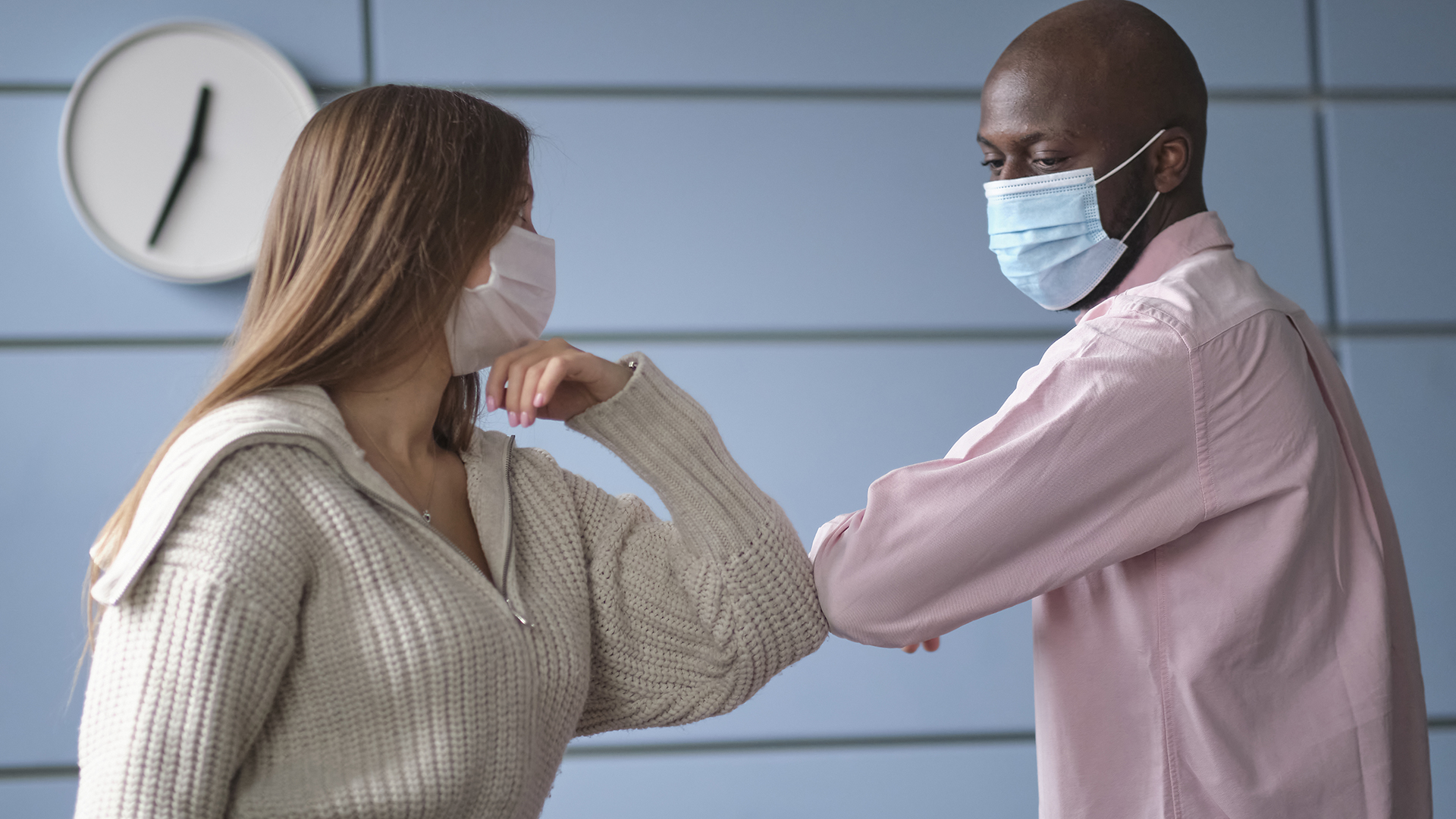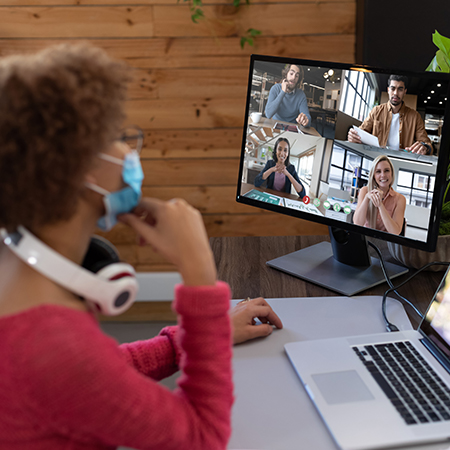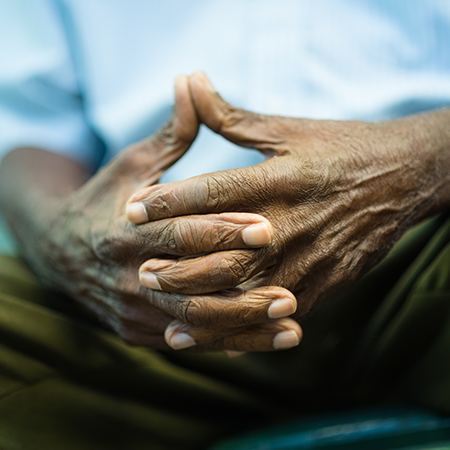COVID-19 Coping Corner for Faculty & Staff
The OCS Faculty & Staff COVID-19 Coping Corner is designed to help faculty, staff, and the University Community, cope with COVID-19 and the challenges it has brought on. As we work through this situation together, please feel free to utilize these strategies and resources.

When you need support, we're here.

Coping Skills For Faculty & Staff At work

-
Set Manageable Goals Each Day
- Being able to meet priorities helps us feel a sense of accomplishment and control. The more control we have over our work, the less stressed we become. Be realistic about workloads and deadlines. Make a 'to do' list, taking care of important tasks first and eliminating unessential ones.

-
Ask For Flexibility
- Flex time and telecommuting are quickly becoming established as necessities in today's business world, and many companies are drafting work/life policies. If you ask, they might allow you to work flexible hours or from home a day a week. Research shows that employees who work flexible schedules are more productive and loyal to their employers.

-
Communicate Effectively
- Be honest with colleagues or your boss when you feel you're in a bind. Chances are, you're not alone. But don't just complain-suggest practical alternatives. Looking at a situation from someone else's viewpoint can also reduce your stress. In a tense situation, either rethink your strategy or stand your ground, calmly and rationally. Make allowances for other opinions, and compromise.

-
Be Efficient with Your Time At Work
- When we procrastinate, the task often grows in our minds until it seems insurmountable. So when you face a big project at work or home, start by dividing the project into smaller more manigible tasks. Focus on completing one task before moving on to the next.

-
Take Five
- Taking a break at work isn't only acceptable, it's often encouraged by many employers. Small breaks at work -or on any project—will help clear your head, and improve your ability to deal with stress and make good decisions when you jump back into the grind.

Taking Charge of Stress and Anxiety: How do I make sense of all of the information regarding the COVID-19 virus and its impact?

-
Limit exposure to news and social media about the virus
- Staying informed, aware and connected to others is important, but wasting away hours at a time engaging in these behaviors often leaves us feeling overwhelmed and anxious. Being depleted emotionally isn’t helpful as we try to take care of ourselves or others. To this end:
- • Keep your consumption of information contained by scheduled blocks of time each day to read the news, engage in social media and respond to emails or text messages related to the pandemic.
- • Try putting your devices in another room or under a pile of clothes and setting a timer. Start small (say, 30 minutes) and work your way up from there.
- • Be thoughtful about the information sources you follow and trust. Fear-mongering and the spread of information that is racist, inaccurate or unsubstantiated isn’t helpful for anyone.

-
Maintain connections with Family and Friends
- Social distancing guidelines are in place to protect the larger community -- At the same time, social connections and social contacts are essential to our survival, so it’s also important during social distancing to:
- • Schedule time to connect with others virtually via video chat and phone.
- • Engage in online community conversations with others around particular topics.
- • Check in with others and ask how they are doing. A simple text message or sharing a funny meme can help to stave off feelings of loneliness and maintain bonds.

-
Pay Attention to Your Feelings and Thoughts, and Know When to Reach Out For Help
- During stressful times and transition periods, it is not uncommon to find ourselves feeling overwhelmed, depleted, anxious, nervous, helpless and afraid. When it comes to our mental health, it’s important to pay attention to how we are feeling and to know when we need to ask for help.
- If you find that you are having difficulty coping with stress and managing your daily life, consider connecting with a professional

-
Stay active and prioritize your physical and mental health.
- Keeping up your physical activity and other health-related habits may be particularly challenging during this time, especially if you are living within an area in which you are asked to self-quarantine or where a major outbreak has occurred...so consider some other potential options:
- • Stretch your body
- • Limit or avoid alcohol and other drug intake.
- • Crank up your favorite jams and host a mini dance party with yourself or your family.
- • Explore or revisit leisure activities that contribute to your relaxation, joy and balance like reading a novel, cooking a new recipe, drawing or painting, or learning a new craft/ hobby.

-
Exercise patience, kindness and compassion toward yourself and others.
- We must be compassionate with ourselves and one another as we experience the effects of the pandemic and should develop some strategies, including some of the following:
- • Freewrite or journal for a few minutes to clear your mind.
- • Take deep breaths, listen to calming music or listen to a guided meditation to promote relaxation.
- • Be patient and kind in your interactions with others. Keep in mind that everyone is managing stressful situations, including families with sick members

-
Create structures to allow you to focus on select responsibilities and goals
- With all the distractions, it can be difficult to maintain our typical habits (e.g., fitness, mental health and wellness). Yet if it is in your capacity, maintaining some semblance of a routine to your day-to-day life can serve as a protective factor for mental health.
- Designate particular blocks of time in your day (even if it is just 15 minutes) for select responsibilities and goals. Doing so offers an opportunity to set up boundaries around certain tasks and can prevent large blocks of time from vanishing. Close your email, click off news and social media, and set a timer.

Coping With Loss of A Student or Co-Worker: When another student, faculty or staff dies, it can have a significant impact on those connected to the individual through the university

-
Allow A Grieving Period
- Depending on the nature of your relationship with the deceased, you may or may not go through a grieving process following their death. Grief is a universal, natural and normal response to significant loss of any kind. It is how we process and heal from an important loss. It can be a painful and tiring experience. Understanding the grieving experience and how best to cope with it can help you recover from grief of any kind.
- Give yourself time to cry and remember them. This can be as short as 15 minutes a day or longer if needed. Allowing yourself time to mourn will help you come to terms with the loss.
-
STAGES OF GRIEF
- Within the first few weeks to months after a death, you may find yourself riding on a roller coaster of shifting emotions. Most people go through these stages not in linear steps, but in unpredictable waves—moving through one stage to the next and sometimes shifting back. Some people will experience certain stages but not others. Here are some common, typical grief reactions:
-
SHOCK AND DISBELIEF:
-
the numbing and disorienting sense that the death has not really happened which can last from several hours to several days.
-
ANGER:
- at the deceased, yourself, others and/or your God for what has happened.
-
GUILT:
- you may blame yourself for not doing or knowing more, or for not dealing with any “unfinished business” that you had with the deceased.
-
SADNESS:
- you may experience a deep sense of loss and find yourself crying. There may be a tendency to withdraw or isolate yourself. You may lose interest in your usual activities, or feel helpless or hopeless. Other recent or past losses may come back to you.
-
FEAR:
- there may be anxiety or panic; fears about the future. It may bring up your fears about your own sense of mortality and that of loved ones.
-
ACCEPTANCE:
-
finally, a stage where you adjust to the loss and move on from it, while continuing to honor the deceased’s memory.
- People in grief may experience physical reactions, such as fatigue, sleep disruption, appetite changes, tenseness, and aches and pains. Common psychological symptoms include feeling distracted, forgetful, irritable, disoriented, or confused

-
Acknowledge the loss
- It is better to give yourself and others permission to talk about what has happened and its impact than to go on as if nothing had happened.
-
Acknowledge individual reactions
- When a student, faculty or staff dies it affects each person in the school or department in a very different way. Some are deeply affected by the loss while others are not. Some people want to talk about their feelings while others want to deal with them in private. It may take some much longer than others to adjust to the loss. Some people may have delayed reactions of grief while others experience grief more immediately. Some individuals may have trouble working in the immediate aftermath of a death while others may be able to focus more intensely as a way of coping. While many people find comfort from strong religious or spiritual beliefs, others will not share those belief systems. Be aware of the different ways that people understand and react to the loss and respect those differences.
-
Be kind to each other
- This is not an easy time for any individual or group on campus and many adjustments have to be made. People may not be at their best. Be accommodating, gentle and understanding with one another during this time. Find ways to cooperate to share any additional workload.
-
Self care
- You may need to give yourself extra amounts of things that nourish and replenish you – rest, relaxation, exercise, diversions. Grief can be emotionally and physically exhausting. Express your thoughts and feelings to trusted people as that can be most helpful. For some it helps to write things down as a means of expression.
-
Give yourself and others time
- In our culture there is a tendency to deny the effects of loss and expect ourselves and others to quickly “get over” a loss. We also fail to acknowledge that the anniversary of losses can trigger a re-cycling of loss reactions. Allow yourself and others the time it takes for each individual to process the loss. This loss may also bring up deaths of loved ones in the past that you will revisit.
-
Funeral and memorial events
- For many attending such events can significantly help the healing process. Students, faculty or staff can give information to everyone on arrangements that have been made and when feasible, provide time to attend for those who are interested. If the events are out of town, people may want to find ways to memorialize the loss locally. If you are uncomfortable attending such events, you may find your own individual way of “saying goodbye.”
-
Honor the deceased
- Consider honoring the person(s) who died in an appropriate way, e.g. collecting money for a charity, creating a memorial book or bulletin board, sending a letter to the deceased’s loved ones. Constructive actions, such as, donating blood or getting involved in volunteer organizations are helpful to some.
-
Be resourceful
- You may need some professional assistance if you find yourself not able to function
as you would like as a result of the loss. Perhaps you have suffered other recent
losses as well. Loss can
trigger clinical depression which should be treated professionally. CPS and Employee Assistance provide short term counseling that can assist in the grieving process. If you are concerned about friend, remind them about CPS and Employee Assistance.



